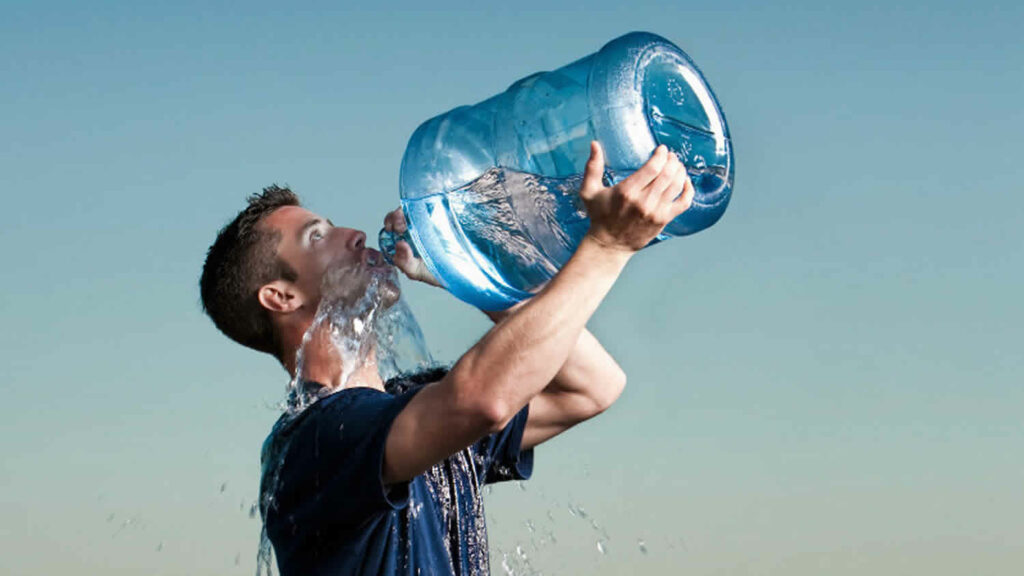Contents
Polydipsia And Diabetes
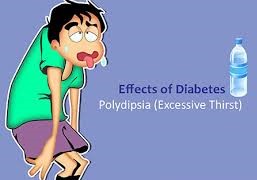
Polydipsia is a medical term used for excessive thirst that cannot be satisfied by drinking limited water. It is one of the main symptoms of many health conditions, such as diabetes, heart diseases, etc. When a person becomes thirsty after eating salty foods, exercising vigorously, or spending time in the sun, then they satisfy their thirst by drinking water. But sometimes people need to drink excessive water to satisfy their excessive thirst. One of the first common signs of diabetes is Polydipsia. It is common in Diabetes Mellitus.
Diabetes Mellitus includes several problems that make it difficult for your body to process and utilize glucose (also known as blood sugar). When your body is unable to absorb blood sugar efficiently, then it causes to increases your blood sugar levels. As a result of high blood sugar, you may experience severe thirst. If your blood sugar levels are normal, but still doctor finds the following symptoms, then he will recommend tests for you only if there is the presence of:
- Low amounts of vasopressin
- Salt and potassium levels in the blood
- A lack of fluid
People who experience these symptoms should seek medical attention. Some medicines that we take for diabetes may cause polydipsia and polyuria. As a result, when patients go to the doctor, they should bring a list of all of their current prescriptions with them.
Types Of Polydipsia
There are several types of polydipsia. Each type has its own set of causes. Some of the factors are physical in nature. Others relate to psychogenic or mental problems. Polydipsia comes in a variety of forms, including:
- Psychogenic (Primary) Polydipsia: This type of polydipsia intakes excessive fluid in the absence of psychological stimuli to drink. Moreover, it causes anxiety, boredom, stress, or mental health problems.
- Drug-Induced Polydipsia: This type of polydipsia is caused by diuretics, vitamin K, salt consumption, and corticosteroids which are also examples of medicines or vitamins that cause polydipsia.
- Compensatory Polydipsia: This type of polydipsia causes low antidiuretic hormone levels in your body. This can result in a lot of urination.
Symptoms Of Polydipsia
A feeling of severe thirst is the most noticeable sign of polydipsia. This symptom is especially seen if you’re experiencing it even after drinking a lot of water. Polydipsia can also cause the following symptoms:
- Urinating in unusually large quantity (more than 5 liters a day)
- A sense of dryness in your mouth
If polydipsia causes any diseases such as diabetes, then it is possible that you may experience additional symptoms also. However, polydipsia accompanies by a variety of diabetes mellitus symptoms, including:
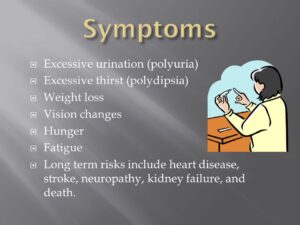
- Being unusually hungry
- Hazy eyesight
- Exhaustion
- Unusual weight loss
- Having a lot of sores or illnesses
- Sores or infections that take a long time to heal
Another symptom of polydipsia is water intoxication. It is often known as water poisoning, which can occur when you drink too much water. It can dilute the quantity of salt in your blood and cause hyponatremia. Water toxication dangerously lowers the level of sodium in your blood. This can result in symptoms like:
- Headaches
- Dizziness or disorientation emotion
Causes Of Polydipsia
Polydipsia is a common symptom of high blood sugar levels. It could be an early indicator of type 1 diabetes or a warning that a diabetic is having trouble controlling his illness. The following are some of the things that may make a person thirstier than usual:
- Diabetes mellitus
- Diabetic ketoacidosis (DKA)
- Diabetes insipidus
- Dehydration
- Sweating, diarrhea, or vomiting
- Administration of some drugs
- Having a dry mouth
Diabetes Mellitus
Insulin helps glucose to enter into cells, where it is used as energy. People suffering from diabetes mellitus either do not make insulin or are unable to efficiently use it. As a result, instead of entering the cells, glucose from food lingers in the circulation disrupts the body. To filter the undesirable sugar out of the blood, the kidneys must work harder. When the body excretes sugar into the urine, it also excretes moisture.
The person becomes thirsty as a result of the fluid loss, so they drink and urinate more. High blood sugar levels can cause a variety of symptoms, including:
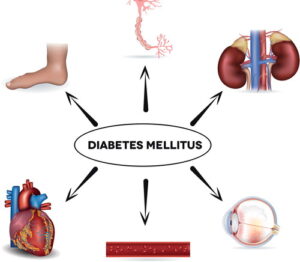
- Unexplained weight loss or gain
- Lack of energy
- Fatigue
- Blurred vision
- Extreme hunger
- Polyuria
The person may discover that they are more susceptible to infections and it will take longer to heal. Moreover, it can cause high blood pressure and cardiovascular disease which may develop over time.
Diabetes Ketoacidos (DKA)
When a person has diabetes and glucose is unable to reach the cells, the body may begin to break down fat for energy. It produces ketones which is a hazardous consequence of this action. Ketones can cause the blood to become too acidic if they build up in the body. DKA, which can be fatal, can occur as a result of the pH change.
Extreme thirst and the urge to urinate often are early signs of DKA. If you have these symptoms, you should check your blood sugar levels. If these levels are at or over 240 mg/dL, the person should examine their urine for ketones for some time. Later symptoms of Ketoacidosis include:
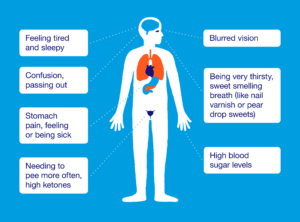
- Loss of consciousness
- Nausea and vomiting
- Abdominal pain
- Difficulty in breathing
- Tiredness
- Dry or flushed skin
- Confusion
- Difficulty in concentrating
- Coma
Anyone experiencing these symptoms should seek immediate medical attention because the disease can quickly deteriorate and become life-threatening. Online kits for checking ketone levels and blood sugar levels are accessible.
Diabetes Insipidus
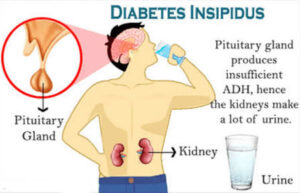
This type of diabetes is extremely rare. It affects only one in every 25,000 people. It’s not the same as diabetes mellitus, and it doesn’t entail insulin resistance. Different forms of diabetes insipidus exist, each with its cause. They all, however, include a vasopressin issue, an antidiuretic hormone that helps in fluid elimination through the kidneys.
Diabetes insipidus causes a person to pass huge amounts of odorless urine. They may pass between 3 and 20 quarts (3.4–22.7 L) of urine every day according to the research. Moreover, people, in this case, report diabetes insipidus as one of the causes of polydipsia. Severe dehydration is a rare occurrence. Some of the dehydration symptoms include:
- Thirst
- Tiredness
- Nausea
- Dry skin or eyes
Even if a person does not believe they are dehydrated, they should seek medical attention right away if they have any of the following symptoms:
- Dizziness
- Confusion
- Sluggishness
Mental Health Conditions
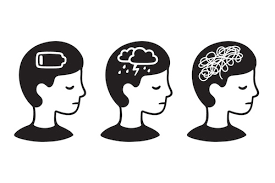
Some people have an unsatisfied desire to drink water and will do so even if they are not thirsty. Psychogenic polydipsia is the medical term for this condition. It can occur by a variety of mental diseases, including:
- Schizophrenia and other personality disorders are among the most common mental illnesses.
- Depression and anxiety are examples of mood disorders.
- Anorexia
Researchers found an excessive thirst or liquid consumption in people going to an outpatient clinic for mental health issues. About 15.7 percent of these persons experienced primary polydipsia, which is also a cause of polydipsia (excessive thirst). It is caused by something other than medicine or another recognized reason. Thirteen patients in this category had schizophrenia, and one had a bipolar illness. The researchers speculate that there could be a neurobiological link between the two disorders.
This indicates that polydipsia can be caused by traumatic brain injury also. When there is a psychological reason for excessive drinking, there is a risk of water intoxication, which can be dangerous. Polydipsia is a condition that researchers are still trying to figure out the reasons for its occurrence. Accordingly, more research has been going on for this cause of polydipsia.
Precautions For Polydipsia
Anyone who has a great thirst for no apparent reason should consult a physician because it can be an indication of diabetes. The doctor may ask the patient to measure how much fluid they drink and how much urine they produce each day if they haven’t already done so. However, you can also take the following measures or precautions:
- Starting the day with a measured container of water through which a person can calculate how much fluid they should drink.
- Then, again you can drink water just by refilling it throughout the day.
- Record how much fluid you drink in 24 hours.
- You should also account for any other liquids while maintaining the record, such as fruit juice and coffee.
- If you have been diagnosed with type 1 diabetes or type 2 diabetes, then your blood sugar levels should be checked first.
- You may be able to lower slightly glucose levels by exercising or taking insulin, if necessary.
You should visit a doctor if the thirst persists or worsens. It could mean you need DKA treatment or any other treatment strategy. However, keeping track of how thirsty you are, how much water you drink, and your blood sugar levels will help your doctor figure out what to do next. Blood and urine tests may be advised by the doctor to assess blood sugar levels and determine the cause of the symptom.
Treatment Of Polydipsia

The treatment will be according to the above causes of polydipsia:
Diabetes Mellitus
The primary goal of treatment will be to keep blood sugar levels within a predetermined range. Insulin is required for those who have type 1 diabetes. Most people with type 2 diabetes will begin by managing their blood glucose levels through lifestyle modifications such as diet and exercise. Insulin, metformin, or another drug can be prescribed by the doctor. Polydipsia symptoms should be relieved by controlling blood sugar levels.
Diabetes Ketoacidosis
To replenish lost fluid and electrolytes, the person may need hospital treatment. Intravenous insulin and rehydration fluids can use as in the treatment or cause of polydipsia.
Diabetes Insipidus
To avoid dehydration, the doctor will encourage the patient to drink plenty of water. They may also prescribe drugs like desmopressin, a synthetic type of vasopressin.
Mental Health Conditions
Counseling can assist a person in becoming aware of how much fluid they are consuming and, if necessary, adjusting their intake. If there is a physical cause, the doctor may modify the person’s medication or take other actions.
Conclusion
The above article states how primary polydipsia occurs frequently in people with schizophrenia and causes other mental illnesses. It can lead to hyponatremia, rapid cerebral edema, coma, and even death. However, it might manifest as a sudden onset of psychosis or an unexplainable onset of seizures. You also get to know about polydipsia types, causes, symptoms, and treatments as well.
Do you want to get rid of diabetes? Join our online diabetes consultation program and reverse your Diabetes naturally through lifestyle changes such as a Personalized Diet plan, Exercise, dieticians, and health coaches.
